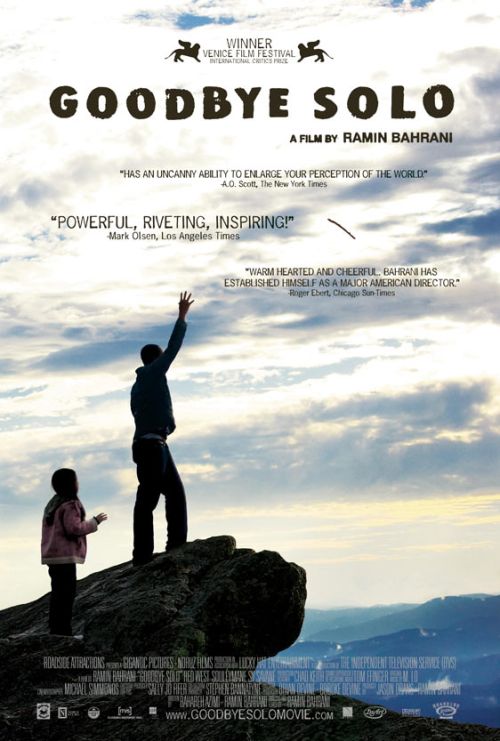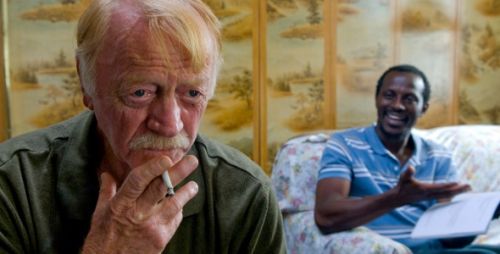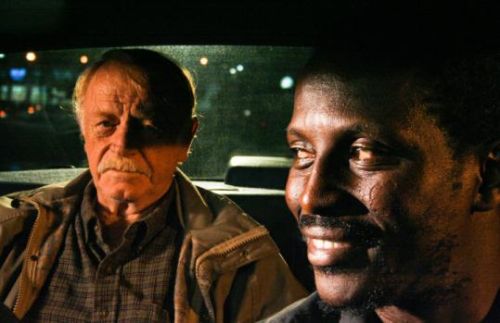Election Day the Movie

Demis

Crazy
What does democracy mean?
Linguists among us already know that it derives from a mashup of the Greek work 'Demis' (meaning large bearded man in a kaftan) and 'Crazy' (meaning a way for Danger Mouse and Cee-Lo to ensure their financial futures and colonise the hybrid brain of the human race for a few years until the next one comes along).
Demis-Crazy, the worst form of government except all the other ones that have been tried (apparently not said by Churchill); the system that resulted in a day off school for so many of us when I was growing up, whose successes can engender social change for the good of all, and whose failures can lead Al Gore to change his appearance.

(Actually, whoever made the comment about democracy being the least of many evils was right to add the rider 'except all the other ones that have been tried - if you want to be inspired by an alternative voting method that aims to be fully inclusive of every voter, and produce results that far more people can live with, more of the time, than democracy as typically understood - winner takes all, satisfying a minority while everyone else grimaces til the next election - then check out Charles de Borda's preferendum system. Trust me - it's fascinating and will change the way you think about how politics is done, and what kinds of social change may already be within our reach. In a weird confluence, the new rules for Best Picture Oscar voting are more like de Borda's system than majoritarianism - one lives in hope that life may imitate art. Consensus - it's the new riding roughshod over the dreams of others.)
But, and you already knew this, I digress.
In 'Election Day', a warm-hearted observational documentary by Katy Chevigny, we see a day in the life of US democracy, on that fateful day when John Kerry was trying to un-swift boat himself; a day, lest we forget, which could have led to John Edwards becoming vice-president, potentially resulting in a rather troubling scandal in the middle of Kerry's first term. (Also makes me think that if the Supreme Court had voted differently in 2000, then last year's most likely Presidential nominee for the Dems might have been his VP. Sometimes things that look bad the first time round seem different on a second look.) In 'Election Day' we see some of the process of how things came together and fell apart in November 2004, following a poll-watcher watching polls, trying to figure out the interaction between the individual and the collective, and taking in the disenfranchisement of marginalised people along the way.
The best thing about 'Election Day' is the way that it reduces our focus from the meta-level bystanding as the scandal of 2000 unfolded - when the world seemed glued to the same photo of that guy peering through a chad to see if it was hanging, swinging, or pregnant (and when I say 'scandal', I don't mean that we should inevitably think that Bush stole the election, nor that Gore should have been crowned prince by the Supreme Court either; just that when it's obvious that not all the votes have been properly counted, that they should all be counted. That would seem a reasonable starting point for agreement on the fundamental principles of Demis-Crazy, wouldn't it?)
 Demis-Crazy in Action
Demis-Crazy in Action
And so we see a few polling stations, watching that apparently uniquely US American phenomenon of everyone getting involved, wearing badges, filling out forms, finding out who the volunteer judges are, and seeing it through to the moment when a supermodel news anchor subverts the process before the votes are counted and tells you who has won. The lasting sense I have two days after watching this enlightening film is - on the one hand a reminder that the US American political experiment really might have something to offer the rest of the world, with genuine opportunities for people to get involved, no matter where they are; and on the other, of the apparent brokenness of the system they want to work.
In the UK and Ireland, you register to vote one day a year. If you're not registered on that day, you go to the local electoral office before the election and sign an affidavit. If you don't have a passport or a driving licence or another acceptable form of ID, you can get one made just for voting. It takes a few minutes. Then you get a card with your name on it, which lists the place you're supposed to vote. On election day, you have from 7 in the morning til 10 at night to vote. You don't even need to remember to bring the card with you. Then you go into the voting booth where you get a card with the names of the candidates on it. You put an 'X' beside the name of the person you want to elect (or rank candidates in order of preference if it's a proportional representation election). You fold the paper and put it in a box. Then you go home and watch TV. About four or five hours after the polls close, the votes have been counted. And I mean actually counted, by people, more than once. If the margins are small, they get counted again. And again if necessary. It's amazing. There are no holes to punch, no judges necessary to confirm your identity, it's very difficult to be confused about where you should vote. 'Election Day' is a valuable film because it presents the paradox of US democracy - a system that so badly wants to work, but nobody seems quite sure of how a government by the people for the people of the people is supposed to be produced.
'Election Day', a fascinating contribution to the patchwork of understanding America is available on I-Tunes.




